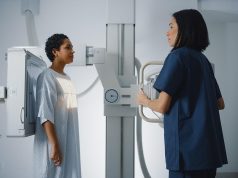Risk for colon cancer increased, risk for rectal cancer reduced in association with oral antibiotic use
WEDNESDAY, Aug. 21, 2019 (HealthDay News) — Oral antibiotic use is associated with an increased risk for colon cancer and a reduced risk for rectal cancer, according to a study published online Aug. 20 in Gut.
Jiajia Zhang, M.D., M.P.H., from the Bloomberg-Kimmel Institute for Cancer Immunotherapy at the Johns Hopkins University School of Medicine in Baltimore, and colleagues conducted a matched case-control study using the Clinical Practice Research Datalink from 1989 to 2012 to examine the correlation between oral antibiotic use and colorectal cancer risk. A total of 28,980 colorectal cancer cases and 137,077 controls were included.
The researchers observed a correlation for oral antibiotic use with colorectal cancer risk; the effects differed by anatomical location. The risk for colon cancer was increased with antibiotic use in a dose-dependent manner. Risk was observed after minimal use; the greatest risk was seen in the proximal colon and with antibiotics with anti-anaerobic activity. An inverse association was seen between antibiotic use and rectal cancer, especially with antibiotic exposure >60 days versus no antibiotic exposure (adjusted odds ratio, 0.85). The risk for colon cancer was increased with penicillins, particularly ampicillin/amoxicillin (adjusted odds ratio, 1.09); the risk for rectal cancer was reduced with tetracyclines (adjusted odds ratio, 0.90). The correlation between antibiotics and cancer was seen for antibiotic exposure occurring more than 10 years before diagnosis (adjusted odds ratio, 1.17).
“Whether antibiotic exposure is causal or contributory to colon cancer risk, our results highlight the importance of judicious antibiotic use by clinicians,” the authors write.
Several authors disclosed financial ties to the pharmaceutical industry.
Copyright © 2019 HealthDay. All rights reserved.








